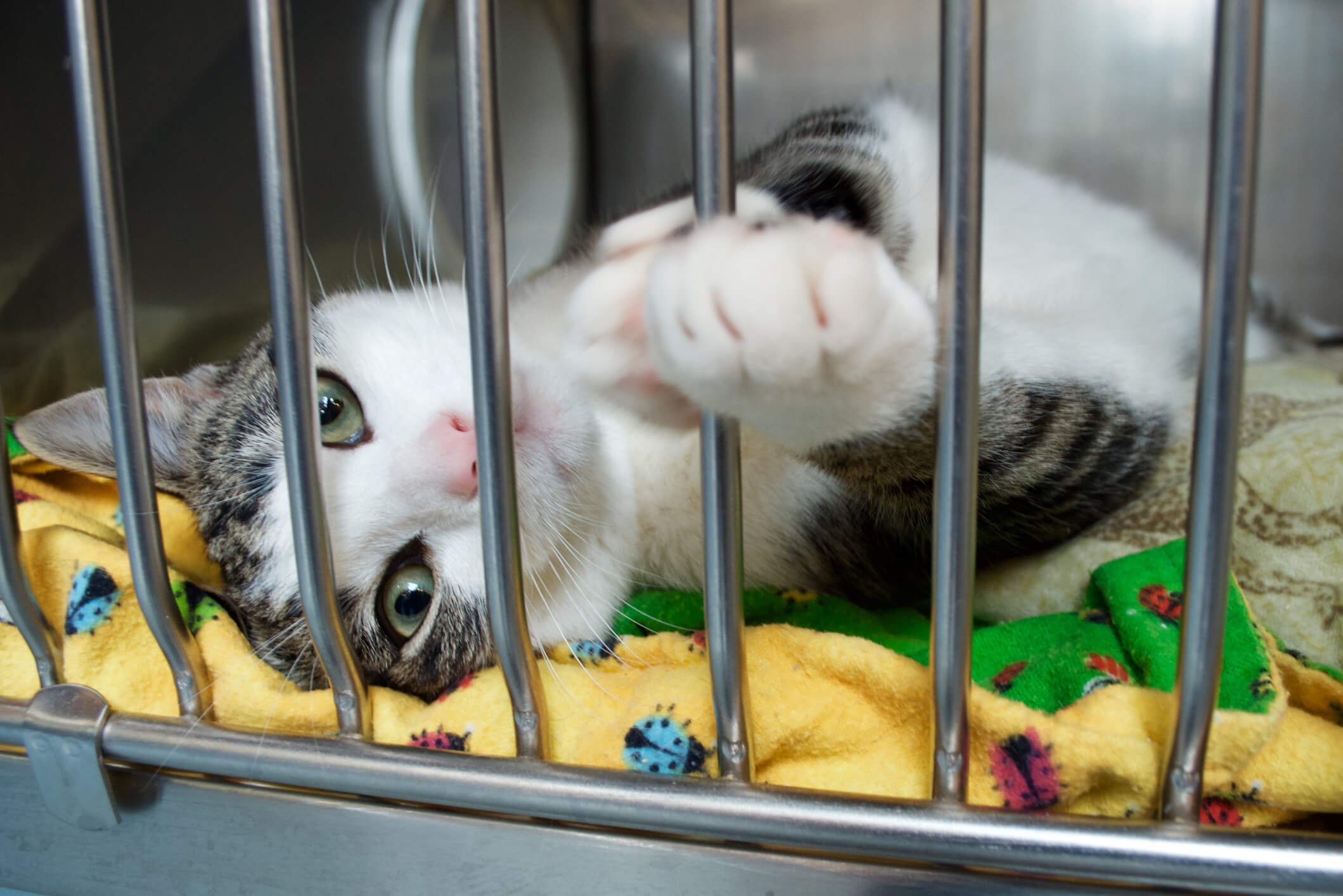
4 Common Kennel Illnesses in Cats
Cats are susceptible to a variety of viral infections, ranging from mild colds to serious cases that require hospitalization. Such viruses often crop up in shelters, kennels and boarding facilities, where many pets are kept in close quarters.
You don’t know the other cats’ medical histories or the germs that could be lurking about! Pet parents can protect their precious kitties from it all by learning about the most common viruses and how to stop the spread.
Viruses that make kitties sick
Cats kept in close quarters are most at risk for contracting any number of diseases. A virus spreads fast when many cats are housed in a single room. Before bringing your kitty home from the kennel or boarding facility, ask a vet to screen them for the following feline illnesses:
- Respiratory infection: This is a broad category that encompasses infections such as feline herpes, feline calicivirus and many others. Cats with a respiratory infection exhibit cold-like symptoms such as a cough, sneezing, leaky eyes, lethargy and fever. Although most cats inevitably fall ill with a respiratory infection at some point in their lives, the good news is that viruses typically clear up after a few days of rest and prescribed medication.
- Panleukopenia: This virus, commonly referred to as distemper, is most common in kennels and boarding facilities with unsanitary living conditions. Cats encounter the disease via organic waste in litter boxes, cages or common areas. Distemper is highly contagious and may turn fatal if left untreated. Pet parents should monitor their cats for a fever, excessive diarrhea, vomiting and sudden weight loss. Treatment includes promptly bringing the cat to a vet hospital where they’ll receive intravenous fluids and antibiotics to prevent further infection.
- Rabies: As you’ve surely heard by now, rabies is a very serious virus that affects cats and humans alike. A rabid feline could easily spread the virus to others within close proximity at a kennel or boarding facility. Infection usually occurs when skirmishes break out, and the infected cat will pass the rabies virus onto others via saliva in bite wounds. There’s no known cure for rabies, which is why pet parents must keep their feline friends up to date on their rabies vaccination.
- Feline leukemia: The feline leukemia virus (FeLV) is hard to detect simply by observing the cat. Infected cats slowly develop blood diseases and experience a weakened immune system. For this reason, cats with feline leukemia are more likely to contract viral or bacterial infections. If your kitty is sick all the time, it could be a sign that they have feline leukemia. The virus is mainly transmitted through direct contact with another cat’s saliva, which can occur during a fight or grooming.
Health tips for preventing illness
Pet parents often turn to boarding facilities when they plan lengthy vacations. Boarding facilities are a fun and safe option for cats, but there’s always the risk of contracting a disease. Take the following steps before dropping your kitty off at a boarding facility:
- Update their vaccines: Vaccines are the most effective—and sometimes the only—way to protect your precious feline from infection. In fact, most local ordinances require every pet to receive a full round of vaccines. They fortify immune systems against rabies, feline herpes, feline leukemia and more. Vaccines not only protect your kitty but others, as well.
- Review the facility’s safety protocols: Before leaving their cats at boarding facilities, pet parents want to know that other people are getting their cats vaccinated, too. Choose a facility that requires up-to-date vaccination records for pets. You’ll also want to make sure the staff keeps kennels and common areas clean to limit cross contamination. If possible, ask a staff member to give you a tour of the grounds to see for yourself.
- Give their immune system a boost: New environments trigger a lot of stress for cats. Pet parents can expect their cats to remain on edge as they visit a boarding facility, especially if they have separation anxiety or aren’t used to other pets. All that stress can weaken a cat’s immune system and make them more prone to infection. Prepare for the transition by administering a daily supplement that boosts feline immune health.
Kennel illnesses are much easier to prevent than treat. Preventative care such as vaccines, clean facilities and a strong immune system will not only save you money but save your fur baby from potentially fatal diseases. By getting cats vaccinated, pet parents are doing their part to keep the surrounding community safe, as well. Kitties can’t take care of themselves—it’s all up to you!



